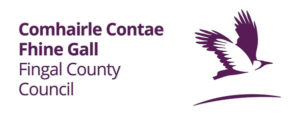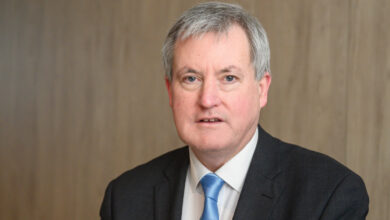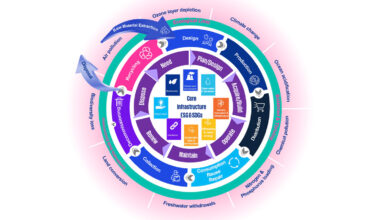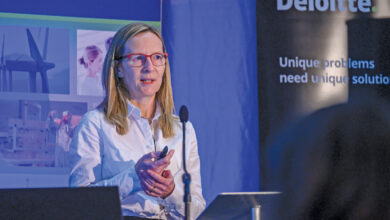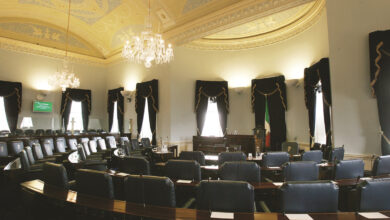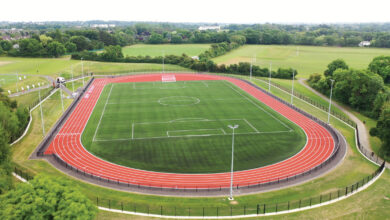Fingal: Ireland’s fastest growing county
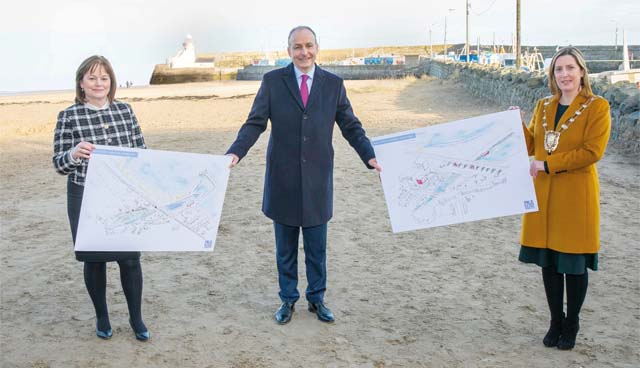
When the first meeting of Fingal County Council took place in Newbridge House, Donabate, on 7 January 1994, few, if any, of the 24 councillors in attendance could have imagined the growth that the new county would experience over the next 28 years.
The county is now a major driver of the Irish economy through Dublin Airport, the business parks of the Dublin Enterprise Zone and the food-producing fields of north County Dublin. Its population has doubled to around 300,000 and is the fastest growing in Ireland at 8.1 per cent.
As the county has grown so too has the Council and the role it plays. At €299.8 million, its budget for 2022 is over six times bigger than the €47.7 million it had to spend in its first year of operation. However, every cent is needed to keep pace with the phenomenal growth the county continues to experience while ensuring the delivery of improved services and helping reenergise economic development in a post-Covid environment.
The budget, which is the equivalent of a €1,012 spend per head of population, will be spent in a number of key areas such as roads, parks, housing, environment and the delivery of a wide range of operational services across local communities, including road maintenance, traffic management, increased street cleaning and improvement works at parks and open spaces. Some €1.2 million has also been set aside to boost the development of the tourism sector in Fingal.
A €784 million Capital Programme is also in place for the next three years covering 237 individual projects across the county and projecting a capital spend in 2022 of €237 million, followed by €265 million in 2023 and a further €282 million in 2023.
This Capital Programme is one of the highest in the country which, according to the Mayor of Fingal, Councillor Seána Ó Rodaigh, is not surprising given the demands created by a burgeoning population and ongoing economic growth. “Investment in infrastructure across the county is extremely important given our commitment to making Fingal a great place to live, work, visit and do business. The focus of councillors and staff over the next three years will be to ensure that all 237 projects continue to progress towards delivery,” she said.
Not surprisingly, the provision of housing and strategic infrastructure makes up over 70 per cent of the Capital Programme with the €393 million housing budget underpinning the Council’s commitment to delivering a significant housing programme under the Government’s new housing plan, Housing for All.
The Council’s objective is to maximise the supply and availability of suitable accommodation for households unable to provide accommodation from their own resources and to provide good quality housing to purchase or rent at an affordable price. Progressing plans for the development of landbanks at Church Fields in Dublin 15, Ballymastone in Donabate and Hayestown in Rush is a major priority.
Almost 20 per cent of Capital Plan expenditure is earmarked for Strategic Infrastructure projects with many of the projects underlining the Council’s commitment to leading on Climate Change and promoting national initiatives such as Active Travel at a local level.
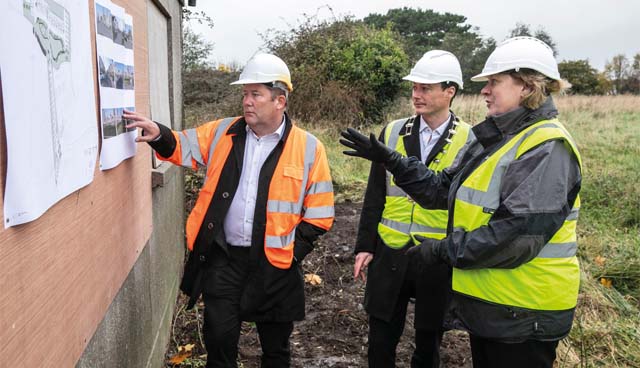
Construction of the Church Fields Link Road and Cycle Scheme is underway while the Donabate Pedestrian Bridge, which will be constructed over the main Dublin-Belfast rail line, is also scheduled to commence in 2022. Preparation work is also continuing for four major greenways. Three of them, when finished, will facilitate the creation of a connected greenway that will run along the Fingal coast from Sutton in the south to Balbriggan in the north while the other, between Castleknock and Lucan, is a key piece of the strategically important Royal Canal Urban Greenway.
A total of €58 million has been allocated to Environment, Climate Action and Active Travel projects across Fingal which will include Protected Cycle Lanes, Road Safety and Active Travel Mobility as well as the continued implementation of the Council’s five-year Climate Change Action Plan.
The Covid-19 pandemic has led to demands for more parks, open spaces and recreational facilities so, over the next three years, Fingal plans to continue expanding the number of regional parks and recreational hubs under its control with projects planned for Baldoyle, Porterstown, Balbriggan, Donabate, Lanesborough and Naul.
Another €23 million is earmarked for the Civic and Cultural Centre element of the Swords Cultural Quarter project, which is due to go to planning in May, while €20 million has been set aside for Community and Sports programmes with the provision of new Community Centres in Meakstown and Baldoyle amongst the Council priorities.
A €50 million regeneration project is currently underway in Balbriggan, Ireland’s youngest town, and last year the Minister for Housing, Local Government and Heritage, Darragh O’Brien TD announced that over €25 million from the Urban Regeneration Development Fund had been allocated to a variety of projects in the town. Many of these will get underway over the next three years and Taoiseach Micheál Martin TD recently viewed some of the projects during a visit to the town.
Chief Executive AnnMarie Farrelly, who leads Fingal’s 1,500 staff, says that, like the Mayor and councillors, her priority is to make sure that the plans and projects become a reality. “Despite the challenges presented by the Covid-19 pandemic we continued to progress many of our capital projects during lockdown and now, as the restrictions ease, we are ready to move forward at pace towards completing as many as possible over the next three years.”
